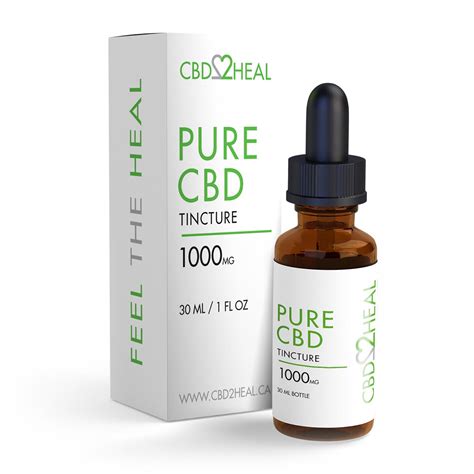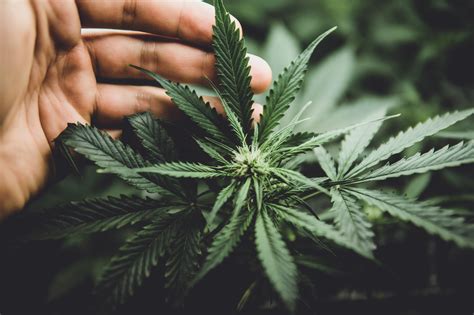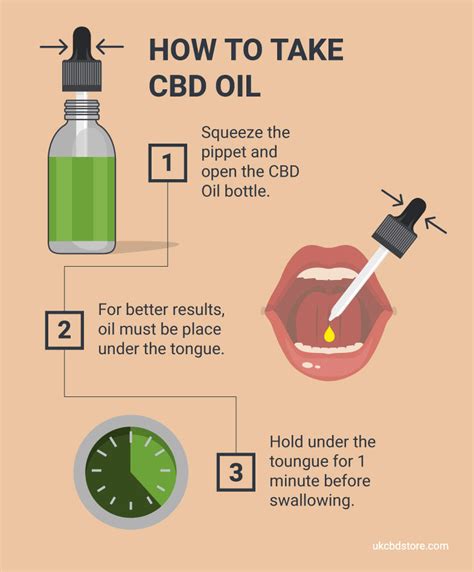How to Check if Your CBD Oil is Genuine: A Comprehensive Guide
The CBD market is booming, and with the increasing popularity comes a rise in counterfeit products. It’s crucial to know how to identify genuine CBD oil to ensure you’re getting the quality and benefits you expect. This guide will equip you with the knowledge and tools to make informed decisions when buying CBD.
How Can I Tell if My CBD Oil is Real?
There are several key indicators to look for when evaluating the authenticity of CBD oil. These include:
- Third-Party Lab Testing: Reputable CBD brands will always provide certificates of analysis (COAs) from independent labs. These reports verify the potency, purity, and safety of the oil. Look for COAs that are readily available on the brand’s website or upon request.
- Legitimate Source: Purchase CBD oil from reputable retailers, online marketplaces, or dispensaries. Avoid buying from unknown sources or those with suspiciously low prices. Check for certifications and licenses from relevant regulatory bodies.
- Clear Labeling: The product label should clearly state the CBD content, extraction method, ingredients, and any potential additives. Look for transparency and accurate information.
- Authenticity Seal: Some brands employ tamper-evident seals or unique codes to verify product authenticity. Check for these features to ensure the oil has not been tampered with.
- Professional Website: Legitimate CBD companies will have informative websites with details about their products, farming practices, extraction methods, and contact information. Look for a well-designed and professional website.
- Positive Reviews: Read customer reviews and testimonials to gauge the general satisfaction and experience of other users. Positive feedback from verified buyers can be a valuable indicator of quality and authenticity.
- Clear Return Policy: Reputable brands will have transparent return and refund policies. This demonstrates their confidence in the quality of their products and their commitment to customer satisfaction.
By examining these factors, you can significantly reduce the risk of purchasing counterfeit CBD oil. Remember, prioritizing your health and well-being requires choosing genuine and high-quality products.
What Are the Common Signs of Fake CBD Oil?
It’s essential to be aware of common signs that might indicate counterfeit CBD oil. These include:
- Missing or Unclear Labeling: If the product label lacks essential information, such as CBD content, extraction method, or ingredients, it could be a red flag.
- Unrealistic Prices: Beware of suspiciously low prices, as this could be a sign of low-quality or counterfeit products. Genuine CBD oil often comes at a premium due to its extraction process and quality control.
- Lack of Third-Party Lab Testing: If a brand doesn’t provide COAs from independent labs, it could raise concerns about the product’s authenticity and safety. Request COAs or look for them on the brand’s website.
- Odd Texture or Smell: Genuine CBD oil should have a smooth and consistent texture. If the oil feels gritty, oily, or has a strong, unpleasant odor, it might be adulterated or counterfeit.
- Unprofessional Packaging: Pay attention to the packaging. Authentic CBD oil will typically be packaged in professional, tamper-evident containers with clear labeling. Look for signs of poor quality packaging or missing information.
- Limited Information: If the brand or seller provides little information about their products, extraction methods, or farming practices, it’s a cause for concern. Trustworthy CBD companies will be transparent and readily share information about their products and processes.
By being vigilant and recognizing these red flags, you can minimize the chances of purchasing fake CBD oil and ensure you’re getting a safe and effective product.

How Can I Check if My CBD Oil is Properly Lab Tested?
Third-party lab testing is crucial for verifying the potency, purity, and safety of CBD oil. To ensure proper lab testing, look for the following:
- Independent Lab: The lab testing should be conducted by an independent, accredited laboratory, not by the CBD company itself. This ensures unbiased and reliable results.
- Comprehensive Analysis: The lab report should include information on CBD potency, THC levels (ideally below 0.3%), and the presence of any contaminants or heavy metals.
- Transparency and Availability: The CBD brand should make lab reports readily available on their website or upon request. The information should be easily accessible and transparent.
- Specific Batch Numbers: The lab report should clearly identify the specific batch number of the CBD oil that was tested. This allows for traceability and ensures the report pertains to the actual product you have.
- Recent Date: Ensure the lab testing was conducted recently. Ideally, the report should be no more than a few months old to ensure accurate and up-to-date information.
When reviewing a lab report, look for a clear presentation of the results, including the date of analysis, the lab’s accreditation, and the specific batch number tested. If a brand is hesitant to provide lab reports or the information is unclear, it’s best to avoid purchasing from them.
How Can I Find the Right CBD Oil for Me?
Selecting the right CBD oil can be overwhelming with the wide variety of products available. Consider these factors to make an informed choice:
- CBD Concentration: Choose a concentration that aligns with your needs and desired effects. Start with a lower concentration and gradually increase as needed.
- Extraction Method: Different extraction methods yield varying levels of purity and quality. CO2 extraction is often considered the gold standard for CBD oil.
- Full-Spectrum, Broad-Spectrum, or Isolate: Full-spectrum CBD oil contains all the compounds found in the hemp plant, including THC (within legal limits). Broad-spectrum CBD oil excludes THC, while CBD isolate contains only pure CBD.
- Flavor and Taste: Consider the taste and flavor options available. Some brands offer flavored CBD oil to mask the natural earthy taste.
- Intended Use: Choose a CBD oil formulated for your specific needs, whether it’s for pain relief, anxiety management, or general well-being.
- Budget: Set a budget and look for brands that offer value for your investment. Consider the concentration, quality, and brand reputation when comparing prices.
By considering these factors, you can narrow down your choices and find a CBD oil that meets your individual needs and preferences.
How Can I Tell If My CBD Oil Is Actually Doing Anything?
The effects of CBD oil can vary depending on individual factors such as metabolism, body weight, and tolerance. It’s essential to understand that CBD oil is not a quick fix and may take some time to experience its full benefits. However, you can look for potential indicators that suggest your CBD oil is working:
- Improved Sleep Quality: Some people report experiencing better sleep quality and reduced anxiety, which can lead to more restful sleep.
- Reduced Pain and Inflammation: CBD oil is known for its potential analgesic and anti-inflammatory properties, which may help alleviate pain and inflammation.
- Mood Regulation: CBD oil may help regulate mood swings and promote a sense of calmness and well-being.
- Increased Focus and Concentration: Some individuals experience enhanced cognitive function and improved focus and concentration after using CBD oil.
- Reduced Nausea and Vomiting: CBD oil may be beneficial in managing nausea and vomiting, particularly those related to chemotherapy or other conditions.
It’s important to note that individual responses to CBD oil can vary significantly. If you’re not experiencing any noticeable effects, consult your healthcare provider to discuss appropriate dosage and alternative options.
Why Is My CBD Oil Not Working?
There are several reasons why your CBD oil might not be working as expected:
- Dosage: You may not be taking a sufficient dose. Start with a low dose and gradually increase as needed to find the optimal level for your body.
- Low-Quality CBD Oil: The quality of the CBD oil can significantly impact its effectiveness. Ensure you’re using genuine, high-quality CBD oil from a reputable source.
- Individual Variability: Everyone responds to CBD differently. What works for one person may not work for another.
- Underlying Health Conditions: Certain health conditions or medications may interfere with the absorption and effectiveness of CBD oil. Consult your healthcare provider for personalized advice.
- Unrealistic Expectations: CBD oil is not a miracle cure and does not provide immediate results. It’s crucial to have realistic expectations and understand that it may take some time to experience noticeable benefits.
If you’re unsure why your CBD oil isn’t working, it’s best to consult your healthcare provider or a qualified CBD specialist for personalized guidance and advice.
What Is the Best Way to Store CBD Oil?
Proper storage is crucial for preserving the potency and efficacy of CBD oil. Follow these tips to ensure optimal storage:
- Cool, Dark, and Dry Place: Store CBD oil in a cool, dark, and dry place, away from direct sunlight, heat, and humidity.
- Airtight Container: Keep CBD oil in its original, airtight container to prevent oxidation and degradation.
- Refrigeration: For longer-term storage, consider refrigerating CBD oil to prolong its shelf life.
- Avoid Extreme Temperatures: Do not expose CBD oil to extreme temperatures, as this can affect its quality.
- Keep Out of Reach of Children and Pets: Store CBD oil safely and securely to prevent accidental ingestion by children or pets.
By following these storage guidelines, you can help maintain the quality and effectiveness of your CBD oil for an extended period.
How Long Does CBD Oil Last?
The shelf life of CBD oil can vary depending on the quality of the product, storage conditions, and the type of CBD oil. However, in general, CBD oil typically lasts for about 12 to 18 months if stored properly.
To ensure the quality and effectiveness of your CBD oil, pay attention to the expiration date on the label. After the expiration date, the potency of the CBD oil may diminish, and its effectiveness may be reduced.
If you notice any changes in the appearance, smell, or taste of your CBD oil, such as a change in color, a strong or unpleasant odor, or a change in texture, it’s best to discard it.
Can You Get High From CBD Oil?
While CBD oil is derived from the hemp plant, which also produces THC (the psychoactive compound in marijuana), reputable CBD oils typically contain very low levels of THC, often less than 0.3%. This amount is generally considered insufficient to produce a psychoactive effect.
However, it’s crucial to purchase CBD oil from reputable brands that have undergone third-party lab testing to verify THC levels. Look for products that clearly state their THC content and are compliant with legal regulations.
If you’re concerned about THC levels, consider choosing broad-spectrum or CBD isolate oil, which do not contain THC. Remember to always follow product instructions and start with a low dose when using CBD oil.

Can CBD Oil Interact With My Medications?
CBD oil can interact with certain medications, particularly those that affect the liver’s ability to metabolize drugs. It’s essential to consult your healthcare provider before using CBD oil, especially if you’re taking any medications.
Inform your doctor about all medications, supplements, and herbal remedies you are taking. They can advise you on potential interactions and recommend appropriate dosage adjustments if necessary.
While CBD oil is generally considered safe, it’s crucial to prioritize your health and well-being by discussing its use with your healthcare provider.
Is CBD Oil Legal?
The legal status of CBD oil varies depending on the country or region. In many countries, CBD oil derived from hemp with low THC levels (typically below 0.3%) is legal for recreational or medicinal use. However, the laws and regulations surrounding CBD oil are constantly evolving.
It’s essential to stay informed about the laws and regulations in your specific location to ensure you’re using CBD oil legally and responsibly. Consult with relevant authorities or legal resources for up-to-date information.
Where Can I Buy CBD Oil?
CBD oil can be purchased from various sources, including:
- Online Retailers: Many reputable CBD brands have their online stores where you can purchase products directly from the source.
- Health Food Stores: Some health food stores carry a selection of CBD oil products from various brands.
- Dispensaries: In some states or countries where medical marijuana is legal, CBD oil may be available at dispensaries.
- Pharmacies: In some regions, CBD oil may be available in pharmacies, either over-the-counter or by prescription.
When choosing a retailer, prioritize reputable brands with a track record of quality, transparency, and customer satisfaction. Look for third-party lab testing, clear labeling, and customer reviews to ensure you’re buying a genuine and safe product.
Summary Table of CBD Oil Authenticity
| Factor | Authentic CBD Oil | Counterfeit CBD Oil |
|---|---|---|
| Third-Party Lab Testing | Provides readily available COAs from independent labs | May lack COAs or provide unverifiable reports |
| Source | Purchased from reputable retailers, marketplaces, or dispensaries | Sold from unknown sources or with suspiciously low prices |
| Labeling | Clearly states CBD content, extraction method, ingredients, and potential additives | May have missing or unclear labeling |
| Price | Priced reasonably based on quality and extraction method | May be sold at unrealistically low prices |
| Packaging | Professionally packaged in tamper-evident containers | May have poor-quality packaging or missing information |
| Website | Has a well-designed and informative website with details about the brand and products | May have a poorly designed or lacking website |
| Reviews | Has positive customer reviews and testimonials | May have few or negative reviews |
| Return Policy | Has a clear and transparent return and refund policy | May have a restrictive or unclear return policy |
FAQs
What is CBD oil?
CBD oil is extracted from the hemp plant, a type of cannabis that contains low levels of THC, the psychoactive compound in marijuana. CBD is a non-psychoactive compound, meaning it doesn’t produce a «high» or altered state of mind.
What are the potential benefits of CBD oil?
CBD oil is believed to offer a range of potential benefits, including:
- Pain relief
- Anxiety reduction
- Improved sleep quality
- Inflammation reduction
- Mood regulation
However, it’s important to note that more research is needed to fully understand the long-term effects and benefits of CBD oil.
Is CBD oil safe?
CBD oil is generally considered safe when used as directed. However, it can interact with certain medications, so it’s crucial to consult your healthcare provider before using it, especially if you have any pre-existing medical conditions or are taking medications.
How do I use CBD oil?
CBD oil is available in various forms, including:
- Tinctures: Liquid CBD oil that is dropped under the tongue
- Capsules: Pre-measured doses of CBD oil in capsules
- Topicals: CBD oil creams or lotions that are applied to the skin
- Edibles: CBD oil infused in food or drinks
The best way to use CBD oil depends on your individual needs and preferences. Follow product instructions for dosage and administration.
How long does it take for CBD oil to work?
The effects of CBD oil can vary depending on individual factors and the method of administration. It may take a few minutes to a few hours to experience noticeable effects.
What are the side effects of CBD oil?
CBD oil is generally well-tolerated. However, some potential side effects include:
- Drowsiness
- Dry mouth
- Diarrhea
- Changes in appetite
- Fatigue
If you experience any adverse side effects, stop using CBD oil and consult your healthcare provider.
Where can I learn more about CBD oil?
You can find more information about CBD oil from reputable sources such as:
- National Institutes of Health (NIH): Provides evidence-based information on CBD oil and other cannabinoids.
- World Health Organization (WHO): Offers guidelines and recommendations on the use of CBD oil.
- CBD industry associations: Provides industry updates, research, and best practices related to CBD oil.
